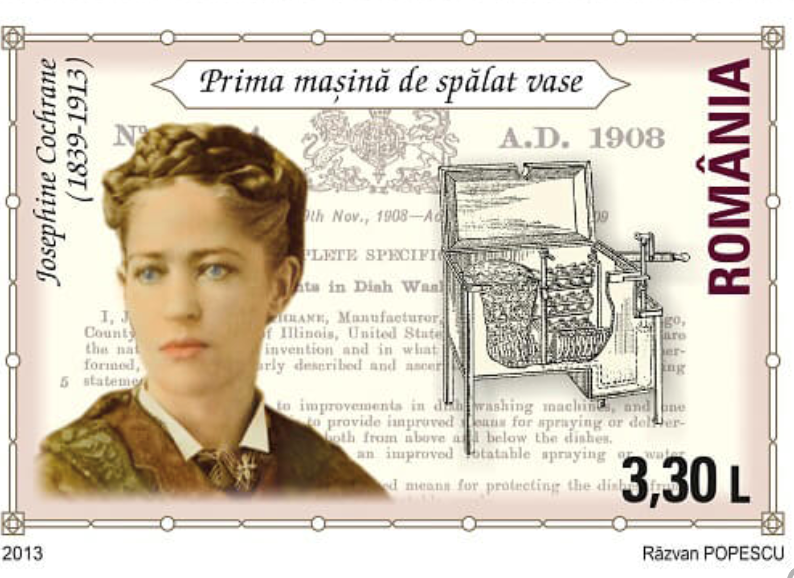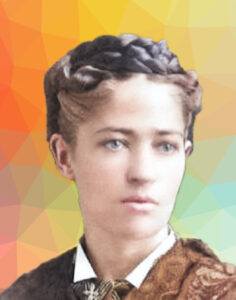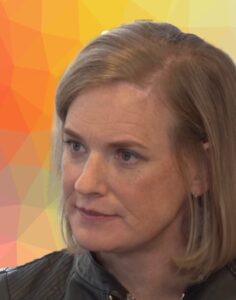Occupation
American Inventor
Birth/Death Dates
March 8, 1839 – August 3, 1913
Summary
Josephine Cochrane invented the first successful hand-powered dishwasher. She designed and constructed it with the assistance of mechanic George Butters, who became one of her first employees.
Cochrane received a patent in December 1886 for her invention and founded the Garis-Cochrane Manufacturing Company to manufacture her dishwashing machines. Cochrane showed her new machine at the World’s Columbian Exposition in Chicago in 1893. There, nine Garis-Cochran washers were installed in the restaurants and pavilions of the fair, attracting interest from restaurants and hotels. She won the prize for “best mechanical construction, durability and adaptation to its line of work” at the fair. The Garis-Cochran Manufacturing Company focused on hotels and other commercial customers and was renamed Cochran’s Crescent Washing Machine Company in 1897.
Cochrane’s Crescent Washing Machine Company became part of KitchenAid through acquisition by Hobart Manufacturing Company after Cochrane died in 1913. Cochrane was posthumously inducted into the National Inventors Hall of Fame in 2006 for her patented invention of the dishwasher.
Educational Background
Unknown
Struggles this Innovator Overcame
Cochrane overcame numerous obstacles to become a successful female innovator. After her husband died in 1883, Cochrane was left with only $1,535.59 and a significant debt, which she had to pay off. Her motivation to create the dishwasher partially stemmed from her urgent need to sustain herself financially. The death of her husband put Cochrane in a trying position as a woman. She had to bring her invention to life, get it patented, find customers, and sell her product to them alone. This undertaking was especially difficult for a woman at that time. Cochrane worked hard to bring her innovation to market, with little money, technical knowledge, or help to develop the mechanics of her pressurized dishwashing machine.
Another challenge she faced was selling her product to individual households. The first dishwashers cost between $75 and $100, which was too expensive for most homeowners (that would be $2,500 – $3,300 in today’s dollars). Additionally, most homes in that era could not handle the machine’s hot water requirements. Years later, homes had larger boilers that were big enough to meet those requirements, eventually allowing Cochrane to sell to housewives, her intended target.
Problems this Innovator Solved
After hosting a dinner party, Cochrane noticed that some of her heirloom dishes got chipped while being hand-washed. This prompted her to search for a better alternative to handwashing. Additionally, she knew that washing dishes by hand could be a tedious chore, and she wanted to eliminate the need for hand-washing dishes after each meal.
How this inventor changed the world (or at least their corner of it)
In the 1960s, Cochrane’s dream was finally realized as dishwashers became a common household appliance. It is hard to imagine a home kitchen without a dishwasher today.
Cochrane received a patent in December of 1886 for her dishwashing machine. She also received a second posthumous patent in 1917 for an improved version. In 1923, the Crescent Dishwashing Company she had founded and led received a trademark for their distinctive half-moon logo. In 1926, the Hobart Manufacturing Company acquired the Crescent Dishwashing Company and produced dishwashers under the KitchenAid brand. In 1986, KitchenAid was acquired by the Whirlpool Corporation.
Lasting changes from this inventor’s work or how they trailblazed
Cochrane was posthumously inducted into the National Inventors Hall of Fame in 2006 for her patented invention of the dishwasher. As a testament to the far-reaching impact of her invention, the government of Romania—a country with which Cochran had no connection—issued a stamp with her face on it in 2013 in honor of World Intellectual Property Day.

https://en.wikipedia.org/wiki/Josephine_Cochrane
https://www.uspto.gov/learning-and-resources/journeys-innovation/historical-stories/ill-do-it-myself






